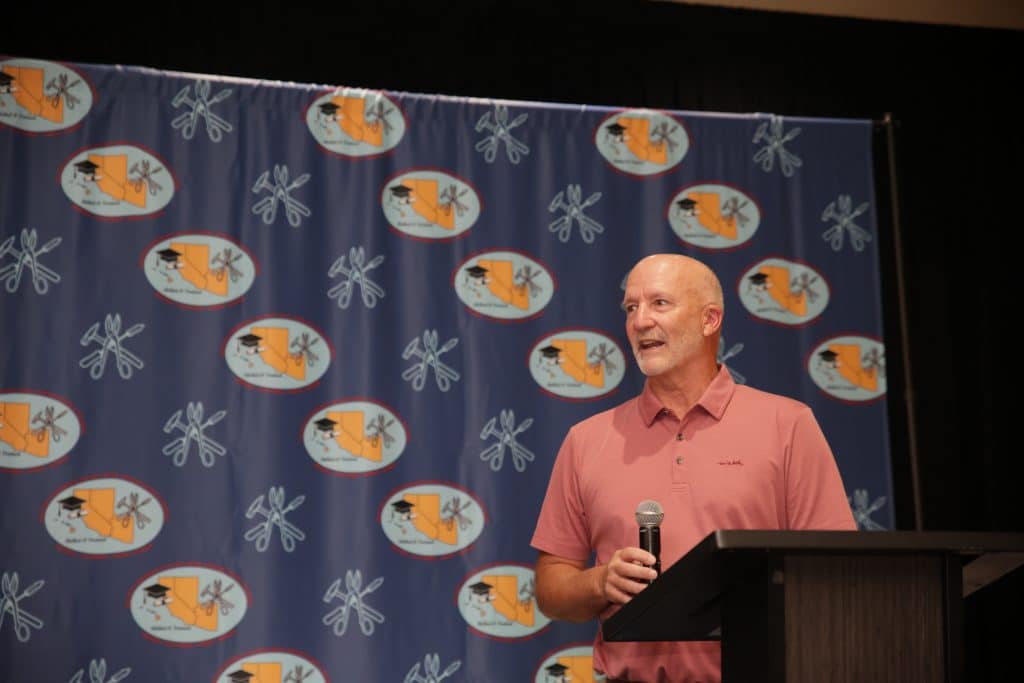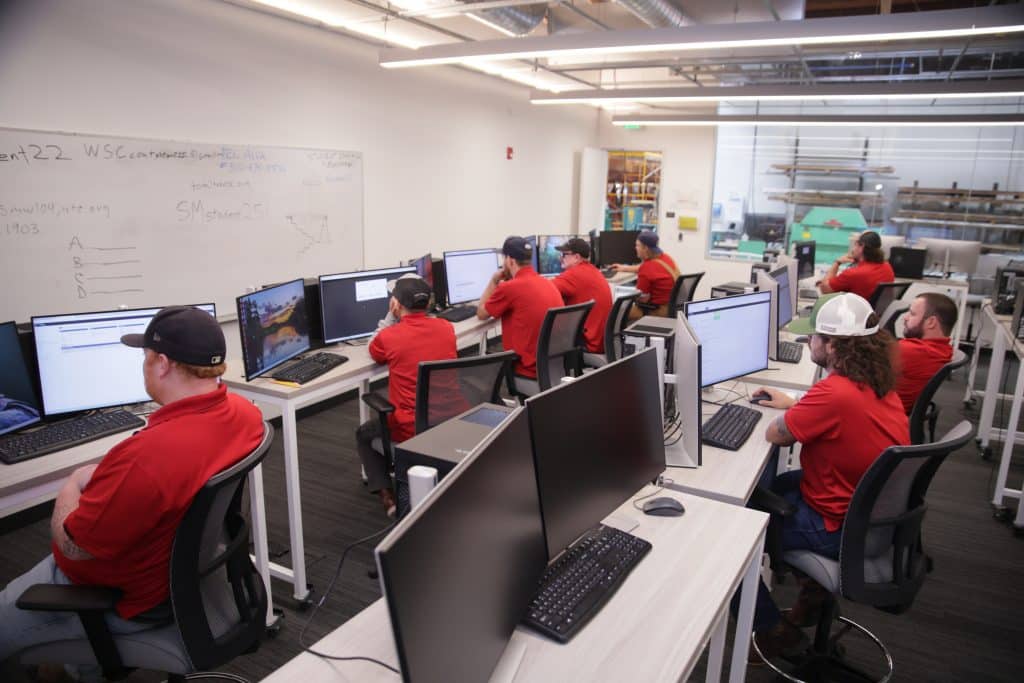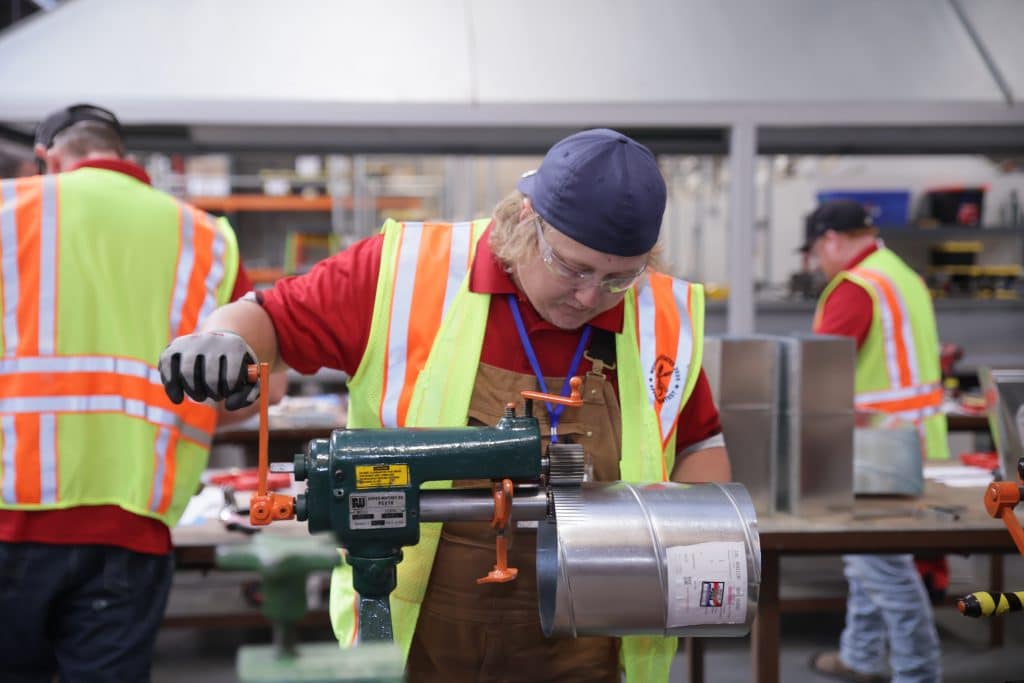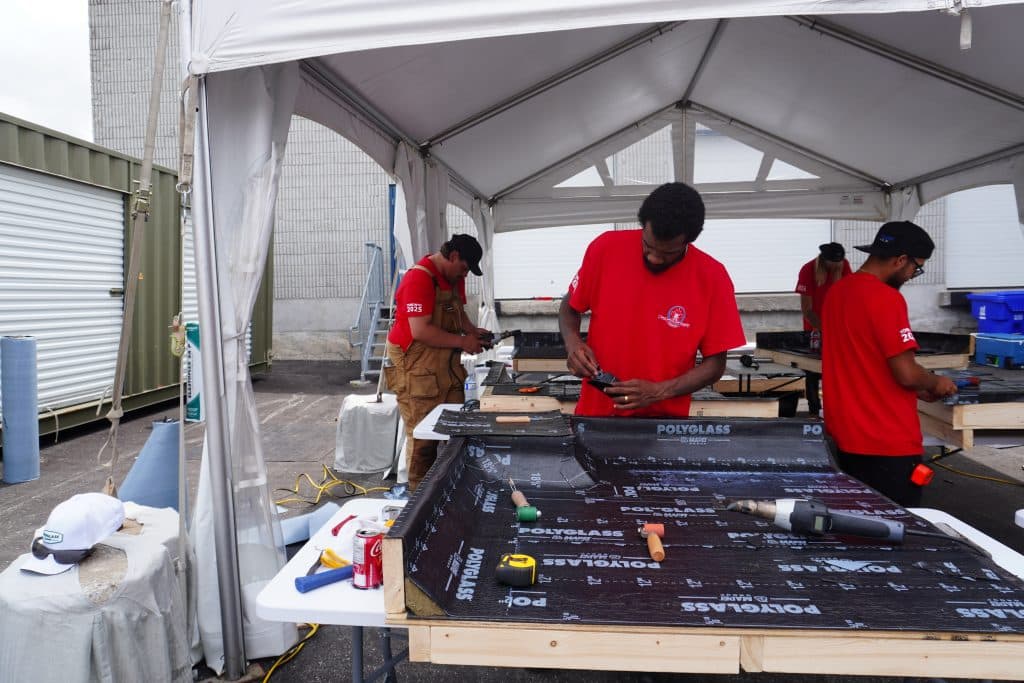Courtesy of the Union Sportsmen’s Alliance.
SMART sisters and allies joined nearly 250 fellow union tradeswomen in southeast Chicago for the Union Sportsmen’s Alliance’s (USA) Tradeswomen’s Fishing Event, held in conjunction with the 15th Annual Tradeswomen Build Nations (TWBN) Conference.
The USA’s women’s fishing event has quickly become a TWBN tradition, with participation quadrupling since it began in 2022. The event offers union sisters the chance to step away from the conference, try something new and celebrate solidarity in the great outdoors. It also has a deeper impact for participants: In 2023, USA’s TWBN excursion inspired Local 85 (Atlanta) apprentice Dee Lee to organize a cross-trades USA event in her area, a “Unions Unite” community service project.

For Gretchen Keen, a member of SMART Local 20 (Indianapolis, Ind.) who began her trade career as an ironworker, the day was about recreation and building relationships.
“I’m an avid angler, so starting off the conference fishing was a highlight,” Keen said. “I even met another ironworker, and when she works in my area, we’re going to hang out. The camaraderie and support are awesome.”

With the help of the Illinois Conservation Foundation (ICF) and Illinois Department of Natural Resources (DNR), the event took place at William Powers State Recreation Area on Chicago’s far southeast side, a neighborhood often overlooked for outdoor recreation. The site is home to an ongoing USA Work Boots on the Ground conservation project, which includes construction of a fishing dock and kayak launch to expand public access to the outdoors.
Joseph Sellers, Jr., SMART general president emeritus, attended to show his support and check out the access project.
“The fishing event was great. It was gratifying to see so many women dropping a line in a lake right in the city,” Sellers said. “Seeing their excitement come alive and knowing the USA is bridging the gap by making fishing accessible to everyone was inspiring. The new kayak ramp and fishing pier are great examples of the USA opening the outdoors to more people.”
“We are thrilled with how the USA’s tradeswomen event continues to grow, bringing together women from more trades and locals every year,” added USA Director of Conservation Sam Phipps. “We are extremely grateful to the United Association, NABTU, United Healthcare, ICF, Illinois DNR, and the volunteers from Sheet Metal Workers Local 73 and Painters District Council 30 for making the event possible.”














